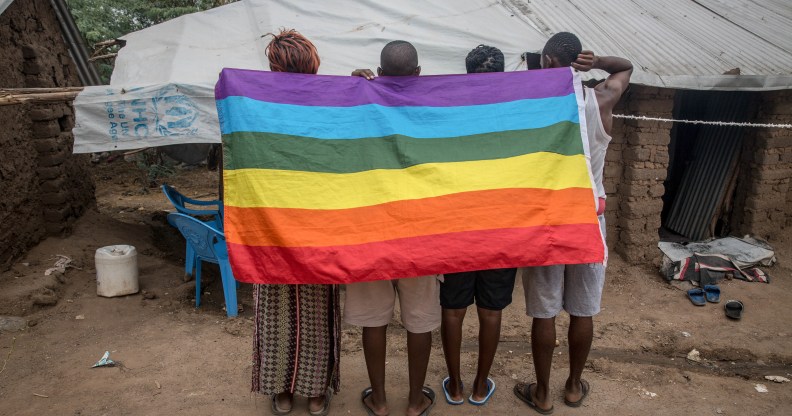Ugandan LGBT activists say hate crimes have surged since proposal of ‘Kill the Gays’ law

Ugandan LGBT+ refugees in Kenya. (Sally Hayden/SOPA Images/LightRocket via Getty)
LGBT+ rights campaigners in Uganda have said hate crimes have surged in the country since a minister proposed bringing back the death penalty for gay sex.
Uganda’s ethics and integrity minster Simon Lokodo announced plans to impose the bill – known as the ‘Kill the Gays’ law in the country – earlier this month.
A spokesperson for the president later denied that it would impose the death penalty for gay people, and said that the current punishment of life in prison “already handles issues of unnatural sexual behaviour”.
But despite the u-turn, LGBT+ activists say the Lokodo’s comments have fuelled even more violence in a country where LGBT+ people are already at huge risk.
Just this month, the government’s security minister called LGBT+ people “terrorists” and a gay activist died after his skull was pierced with machetes in a homophobic attack in his home.
According to Reuters, executive director of Sexual Minorities Uganda, Frank Mugisha, said: “What we are seeing recently – these continuous attacks over such a short space of time – is not normal.
“We know that they are all hate crimes as attackers made anti-gay comments.
“We cannot make a direct link between the minister’s statement and the attacks, but such remarks clearly help to stoke homophobic sentiments and hate crimes.”
Although campaigners said that on Sunday a gay Rwandan refugee was hospitalised after being beaten outside his office in Kampala, and two trans women were attacked on October 13, Ugandan police said they had not registered any assaults specifically targeting LGBT+ people.
On Monday, 16 LGBT+ activists were arrested after an anti-gay mob surrounded their office, and police said they were taken into custody because of reports that they “looked suspicious”.
A Kampala police spokesperson told Reuters: “Police went to the house and they are trying to find out if they are involved in any criminality or illegal activities.”

